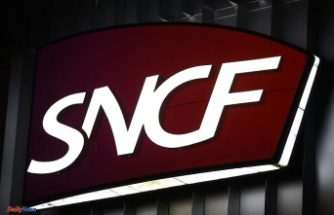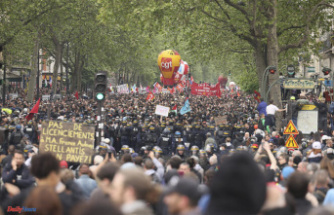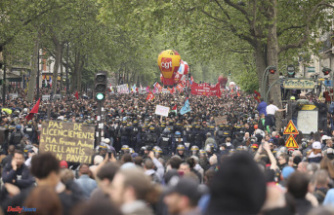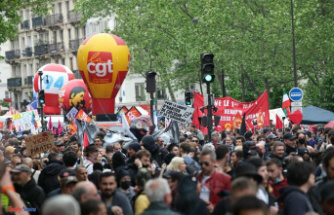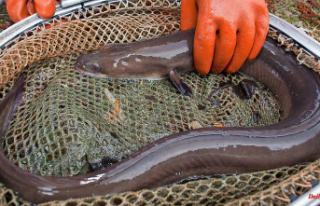The rail network needs a comprehensive makeover. Experts suggest Minister of Transport Wissing how the federal government and the railways can speed things up. Instead of the previous 190 funding pots, two would be enough. And the permit should be purged.
The rail network in Germany is dilapidated in many places - the result: unpunctual trains. And so that more passengers switch from cars to trains, capacities must be expanded. The major conversion is now to be tackled with a comprehensive package of measures. In addition to long-term steps, a commission set up by the federal government is also proposing small measures that should have a big impact.
"It can't stay the way it is," said Federal Transport Minister Volker Wissing in Berlin when he received the final report of the "Rail Acceleration Commission" with representatives from the entire rail sector. The FDP politician spoke of "first aid for the rails". The rail network had been neglected for a long time, but traffic had increased. The railway network urgently needs to be modernized. After all, the railways should play a key role in achieving the climate goals - and so far there has been a big gap in the transport sector. Capacities are now to be increased, it is to be built faster and the network is to be digitized. All this will cost a lot of money. Wissing made it clear that he was in agreement with his party colleague, Finance Minister Christian Lindner: funding from the federal budget should not fail.
The Commission's inventory is sobering: parts of today's rail network are overloaded and in poor condition. "Delays and cancellations are among the consequences that rail customers feel." From the coming decade, major new construction and expansion measures should remedy the situation. Then the "Germany clock" should come: long-distance traffic between the large metropolitan regions should be more closely timed, long-distance and regional traffic should be better coordinated. "Until then, the significantly underfunded network infrastructure will exacerbate the situation even further," says the Commission's report. One of the key points of their proposals is a radical reform of rail funding. So far there have been 190 funding pots, which leads to incredibly complex administrative procedures and at the end of a budget year a lot of money has not been paid out, said Tobias Heinemann, President of Mofair, in which Deutsche Bahn's competitors are represented.
For this reason, according to the will of the Commission, there should only be two funds in the future, which should have an effect over several years - and not from budget year to budget year: one for the renovation of the existing network and an expansion and modernization fund - for this should also shares in additional income from the truck tolls are used. To date, the revenue from the truck toll has been used for road infrastructure.
Ultimately, the Bundestag must decide whether these funds come. The Commission is also proposing measures that can be implemented quickly and which could already significantly improve the rail network. For example, a "priority to rail" should be introduced in planning law. The scope and duration of approval procedures should be reduced for new points, longer passing tracks or the closing of electrification gaps. Blocking times due to construction sites in the rail network are to be reduced. A renovation of so-called high-performance corridors is central. These are particularly heavily used routes on which disruptions have serious consequences for the entire train operation.
Wissing and the state-owned railway have already announced such a general renovation. The first project will start in 2024 on the Frankfurt/Main and Mannheim route, the so-called Riedbahn. The Berlin-Hamburg route is to follow in 2025 and will be completely closed and renovated for around six months. The general renovation will be a difficult time for rail customers, but after that everything should get better. So far, such renovations have often been spread over several years.
The infrastructure board of Deutsche Bahn, Berthold Huber, said that the rail network could hardly cope with the high volume of traffic. It is simply too scarce, too old and too prone to failure. "In order to be able to achieve short-term improvements here, the existing network must be renewed at high speed and its capacity expanded." The results of the Acceleration Commission could make an extremely valuable contribution to this. Ludolf Kerkeling, CEO of the freight railways, called for political priority for the catalog of measures. The managing director of the Pro-Rail Alliance, Dirk Flege, member of the commission, spoke of trend-setting proposals.
Kerstin Haarmann, federal chairwoman of the ecological transport club VCD and also a member of the commission, commented: "Now Volker Wissing has to submit, and quickly." However, the Minister of Transport currently has another construction site. He is at odds with Green Environment Minister Steffi Lemke over the question of whether motorways should also be planned and built more quickly.


